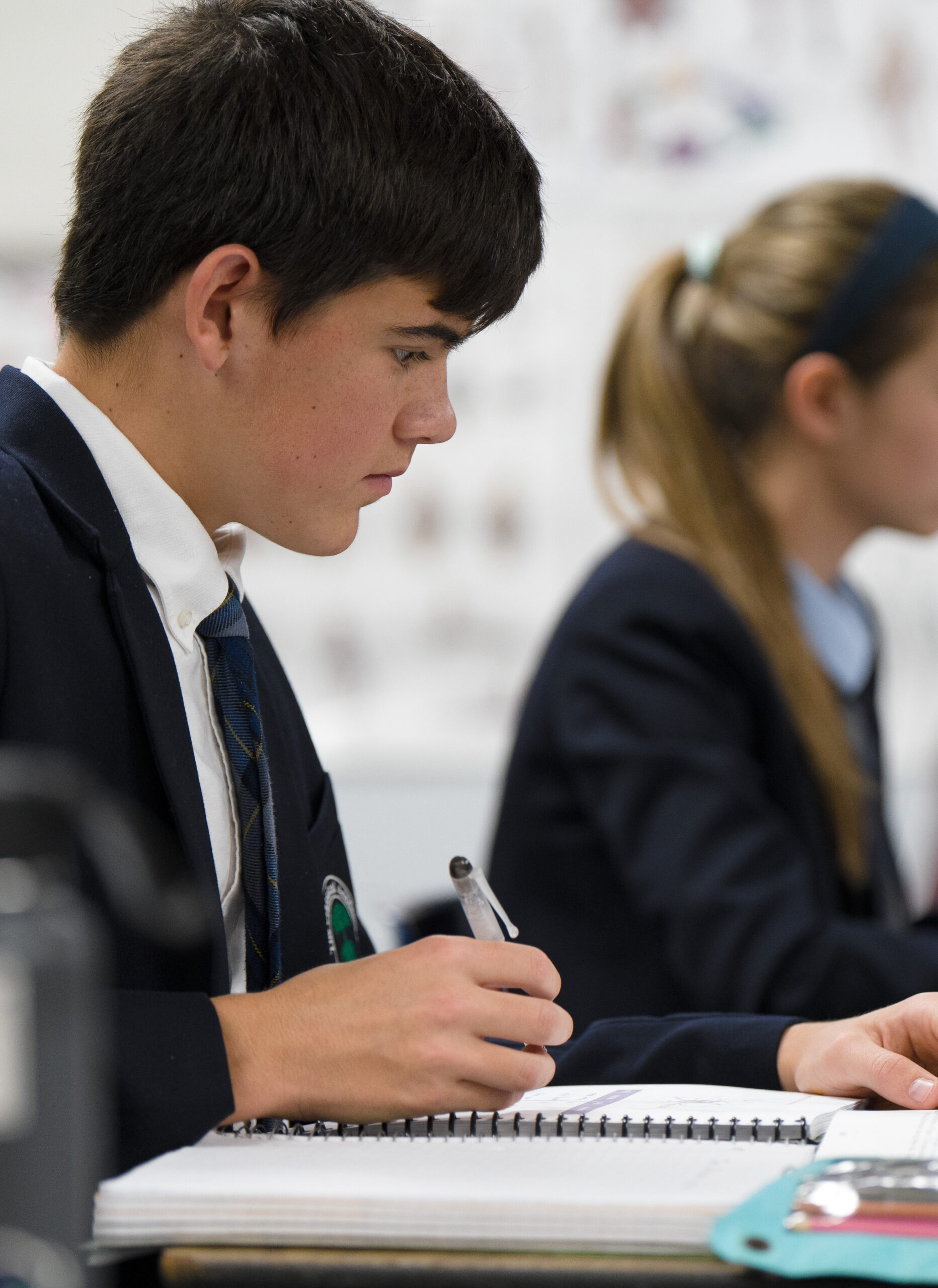Rhetoric School
9th-12th Grade
A golden opportunity to infuse wisdom and eloquence…
In the rhetoric stage, students become concerned with what others think of them. This change in students’ development is a golden opportunity to infuse wisdom and eloquence. During rhetoric school, students will refine their ability to recognize ideas, form an argument, and communicate eloquently and convincingly. These skills culminate in the defense of a senior thesis. Students are focused on learning, integrating, and communicating truth across all disciplines in both speech and written word. The formal study of rhetoric begins in 10th grade.

What Your Child Will be Doing in Rhetoric School
Initiated as an Academy student leader through a Blazer Ceremony in 9th grade
Deeply engage the wonder, mastery, integration approach to the sciences and conduct formal science labs
Study history, literature, and theology as one integrated whole
Develop a robust Biblical worldview and learn how to think like a Christian
Recite great poetry
Write well-structured, eloquent, and persuasive papers
Go beyond typical STEM learning, by seeing how advancement in math and sciences require the ability to make connections between multiple disciplines
Consider how historical events shape and are shaped by literature
Read full Latin texts
Write and defend a senior thesis involving both secondary and primary sources that integrate across multiple subjects
The Socratic Method of Teaching
Socratic teaching is a guided question and answer form that is highly effective in teaching students to think. The teacher typically asks a broad “opinion” question that seems to have no right answer. Then, as the students attempt to answer, the teacher guides them through the use of logic toward thoughtful and defensible conclusions.
While this seems straightforward, Socratic teaching is an art. It takes time, which is why most schools do not practice it. This teaches students to use their minds in a way that develops independent thinking, rather than simply repeating information they are given.
